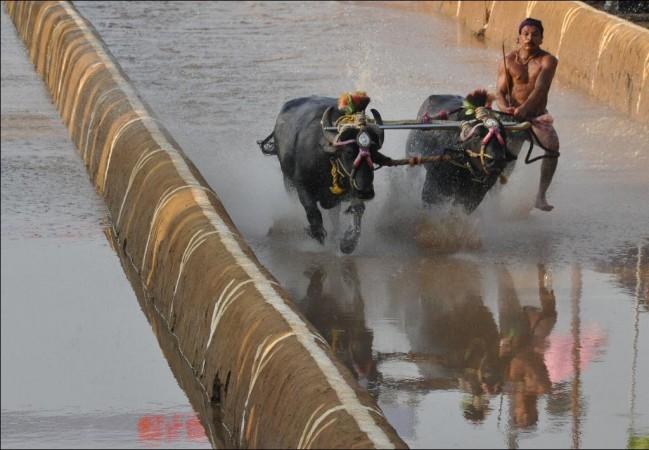
The Karnataka Assembly on Monday, February 13, passed a Bill to hold the buffalo-racing sport of Kambala in the state.
Kambala is a buffalo-cart race that is organised from November to March by heads of villages in coastal Karnataka. It was banned by the Karnataka High court after a public interest litigation (PIL) was filed by the India unit of the People for the Ethical Treatment of Animals (PETA) in 2016.
Protests in favour of organising Kambala gathered momentum in Karnataka following agitation against the ban on the bull-taming sport of Jallikattu in Tamil Nadu, which forced the state Assembly to pass an ordinance followed by a Bill to declare the ban on Jallikattu null and void.
Protests to revoke the ban on Kambala were held across Karnataka in places like Hubballi and Mangaluru, while calls were made to impose a ban on PETA as well. Protests got intense after politicians came out in support of the bull-racing sport. Former Karnataka Chief Minister BS Yeddyurappa promulgated the idea of an ordinance to bring back Kambala, just like it was done in the case of Jallikattu. Current CM Siddaramaiah also said that he was in favour of bringing back the sport.
"We are for Kambala, not against it. It is a rural sport. If necessary, we will bring legislation for it," Siddaramaiah had said. The Karnataka High Court had adjourned the hearing of cases related to Kambala for two weeks on January 30 this year, saying that it would pass a judgement only after the Supreme Court's verdict on Jallikattu comes out.
However, PETA continued to oppose Kambala because of the cruelty said to be meted out to the animals. PETA India CEO Poorva Joshipura released a statement on Monday, saying: "Some have been calling for the legalisation of events such as bull and buffalo races, during which animals are often hit with nail-studded sticks; cockfights, in which knives are often tied to roosters' feet to make fights bloodier; and bulbul bird fights, for which birds are trapped and fed intoxicants. Cruelties inherent in these events violate the Prevention of Cruelty to Animals Act 1960."
Joshipura added that as many as 65 "non-cognisable offence complaints and one FIR were filed at just three events inspected by the government body Animal Welfare Board of India during Kambala events in 2014 and 2015."
"The inspection reports contain a scientific assessment of the welfare of buffaloes when they are forced to participate in such events, including photographic evidence and a description of different forms of cruelty inflicted on the animals, such as being subjected to verbal abuse and physical force – including shouting, hitting with hands, slapping on the face, violent pulling of thick nose ropes (in some cases two or three nose ropes inserted through the same hole in the nasal septum), rough handling by pushing and pulling the animal, overpowering, tail pulling, and restricting the movements of the head using a wooden pole tied to the horns. Many of the buffaloes observed frothed at the mouth, salivated heavily, and displayed increased respiration rates, demonstrating that they are anatomically unfit to be forced to take part," Joshipura said in the statement.
PETA's statement further said that India was moving backwards by allowing such sport to be held in the country while other nations were "progressing ahead by banning the use of animals in circuses, bullfights, and other cruel spectacles. Allowing this cruelty to animals is a shameful black mark on our nation."









